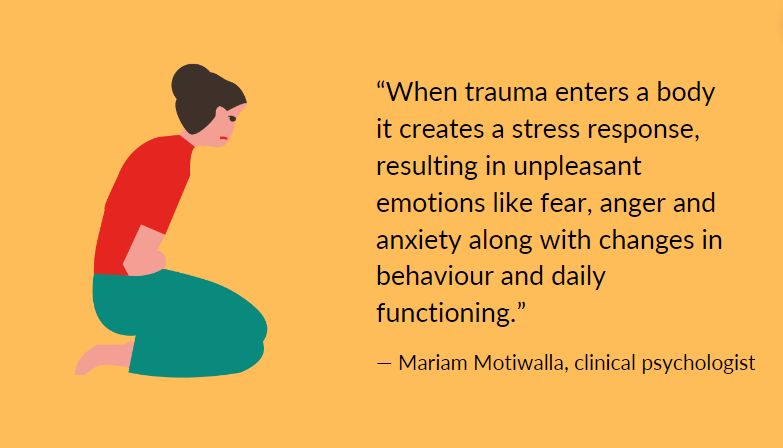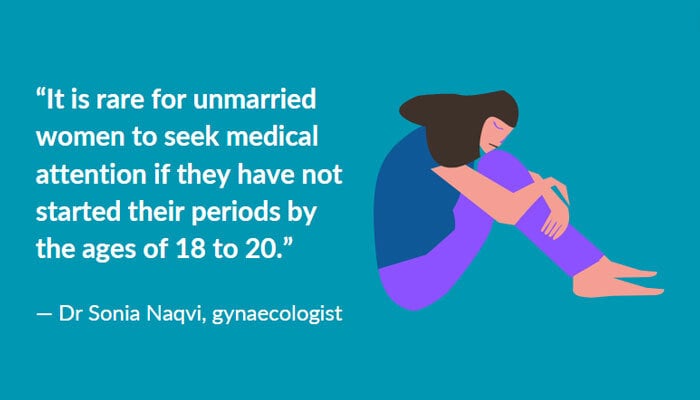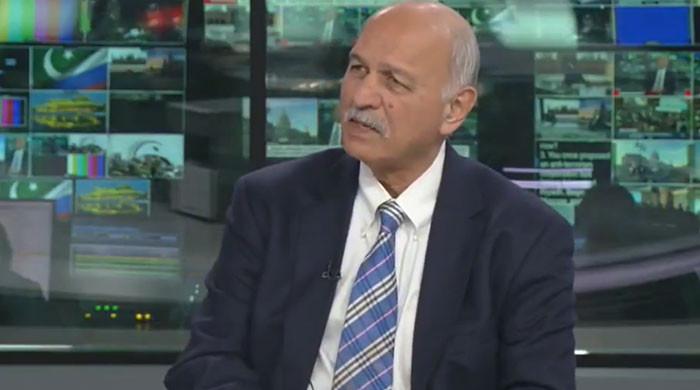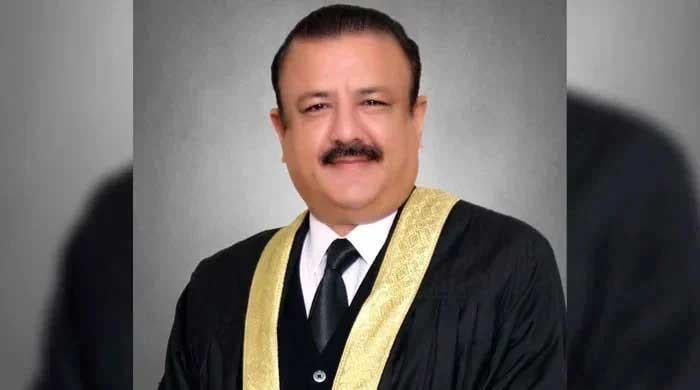Gynae care: A nightmare for unmarried women in Pakistan?
Unmarried women mostly hesitate to go to a gynaecologist, but those who do, often face judgemental attitudes and intrusive remarks
September 08, 2024

Anam*, a 27-year-old unmarried woman, encountered the horrors of her life when she visited a gynaecologist in Karachi after contracting a urinary tract infection (UTI) — an experience she describes as one of her worst.
"I went for a UTI checkup, and the gynaecologist examined me, mentioning that the infection was 'not severe'," Anam told Geo.tv while describing the incident. She recalled how the doctor had assumed she was married.
"I'm not married," she informed the doctor, who then responded, "Your private area suggests otherwise."
What followed was something Anam could never have imagined: a barrage of judgements that left her traumatised and mentally scarred for years.
Despite Anam's vehement protests and denial of the accusations, the gynaecologist persisted and conducted an invasive vaginal examination, all the while accusing her of engaging in "sexual activity" with her boyfriend.
Anam is not the only unmarried woman to have experienced this horror, as incidents like these are not uncommon in Pakistan. Many like her usually hesitate to visit a gynaecologist, but those who do seek medical help, often face judgemental attitudes and intrusive remarks from healthcare providers. One might wonder if these distressing encounters are only confined to lower-income neighbourhoods; however, they also occur in upper-class areas.
To understand the extent of the matter, I reached out to women through social media and received an outpouring of messages from victims sharing similar experiences, highlighting the prevalence of this attitude among female gynaecologists.
Hush hush over usage of words like 'UTI, periods'
Nimra*, who suffered a UTI at the age of 19, spoke about visiting a gynaecologist with her mother after she began missing her periods and gaining weight.
"I shared my issue [with the doctor] and she started shaming me for [using words like] UTI and periods and told my mother how I don't have 'haya' and that we are creating a fuss about nothing," she said while speaking to Geo.tv.
Nimra termed the visit extremely traumatising, explaining how, at the age of 25, she could not see a gynaecologist despite having an ectopic pregnancy due to the distressing experience.
Gynaecological care, especially in South Asian countries, including Pakistan, is considered taboo among unmarried women. They either visit a doctor when they are pregnant after marriage or when it is necessary. When a woman visits a gynaecology clinic, she is presumed to be married and questioned about how long she has been so. Women and their bodies are often associated with sex even when they are not sexually active.
Shamed for having PCOS
Fourteen-year-old Shazma* visited a gynaecologist with her elder sister, Aliya*, when she found out she had Polycystic Ovary Syndrome (PCOS). The doctor, however, completely dismissed her concerns. "Bring her to me when she is about to get married," the doctor had told her sister.
When Aliya took her teenage sister to another gynaecologist, this doctor also made assumptions. The doctor took no time in blaming the young girl’s condition on an "intimate relationship with an opposite gender."
PCOS is a common hormonal condition that affects women of reproductive age. It alters the functionality of the ovaries in women, affecting their menstrual cycle.

According to health experts and gynaecologists, over 50% of women in Pakistan suffer from PCOS, which is unrelated to sexual activity. Although the exact cause of PCOS is not known, it is often hereditary and may result from insulin resistance, low-grade inflammation, or excess androgen.
Describing her teenage sister Shazma's ordeal, Aliya said: "These experiences deeply affected both me and my sister, as she was unable to see a doctor for a long time. It was traumatic for my sister because she was too young to understand what was happening."
Often, when women face piercing judgements from gynaecologists — who are supposed to be empathetic — they struggle to make sense of the situation. Many choose to remain silent, while only a few victims speak out to avoid further trauma and judgement.
'Lose weight, eat less'
Maria was just 15 years old when she visited a senior male gynaecologist for her PCOS issues. Instead of prescribing medicines or anything else, the doctor insisted that she "needed to lose weight and eat less." Clinically, it was not wrong advice as there's a relation between PCOS and obesity, which exacerbates the syndrome. However, the way he approached her was no less than body-shaming.
Recalling how the health practitioner compared her with models and actresses, Maria said he asked if she did not want to look like Kareena and Katrina.
"The experience was quite unsettling because I was dealing with a lot of PCOS symptoms, had gained a lot of weight, was unhappy with my body image, and my periods were irregular," said Maria, adding that the doctor refused to listen to her problems and started shaming her for her weight.
'Victims avoid getting health checkups'
Mariam Motiwalla, an associate clinical psychologist who has offered help to her female patients experiencing such instances, explains that a person who goes through a traumatic experience with a healthcare provider develops a mindset of being vulnerable to harm. This, consequently, leads them against opting for health betterment.
"When a person experiences trauma, it triggers a stress response in their body, leading to unpleasant emotions like fear, anger, and anxiety, as well as changes in behaviour and daily functioning," Motiwalla told Geo.tv when asked how these experiences impact a woman's mental and emotional well-being.

Motiwalla, speaking about her clients with such experiences, says they often project negative thoughts and fears onto medical professionals, assuming their problems will not be resolved.
"The most common symptoms of trauma are anger, panic attacks when discussing the event, and sensitivity to being touched," she said.
'Few' unmarried girls visit gynaecologists
Dr Sonia Naqvi, a gynaecologist, shared with Geo.tv that a small number of unmarried girls, particularly from educated backgrounds, visit gynaecologists.
She noted that these visits are typically prompted by concerns such as vaginal discharge or PCOS. "However, it is rare for unmarried women to seek medical attention if they have not started their periods by the ages of 18 to 20," she said.

Dr Naqvi emphasises that these women are often accompanied by their mothers, as they may not feel confident enough to visit a gynaecologist alone.
She adds that they usually opt for private clinics and are generally well-informed about their health issues.
The troubling experiences shared by women highlight a pervasive issue within gynaecological care in Pakistan, where judgemental attitudes not only breach ethical boundaries but also inflict long-lasting trauma on patients.
To address this deeply ingrained problem, it is vital to educate healthcare professionals, promote sensitivity training, and dismantle the stigmas surrounding women’s health.
The names of victims have been changed in this story to protect their identity.
The writer is a staffer at Geo.tv.









